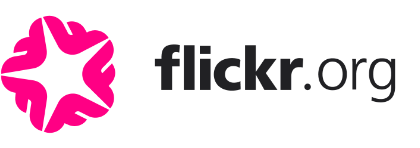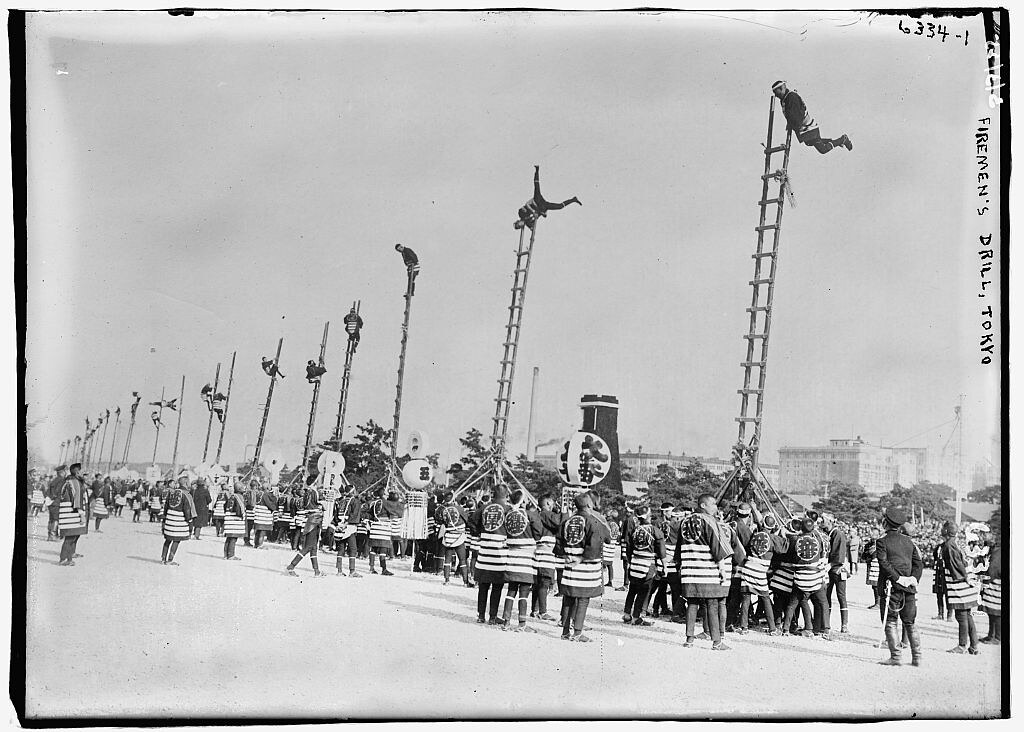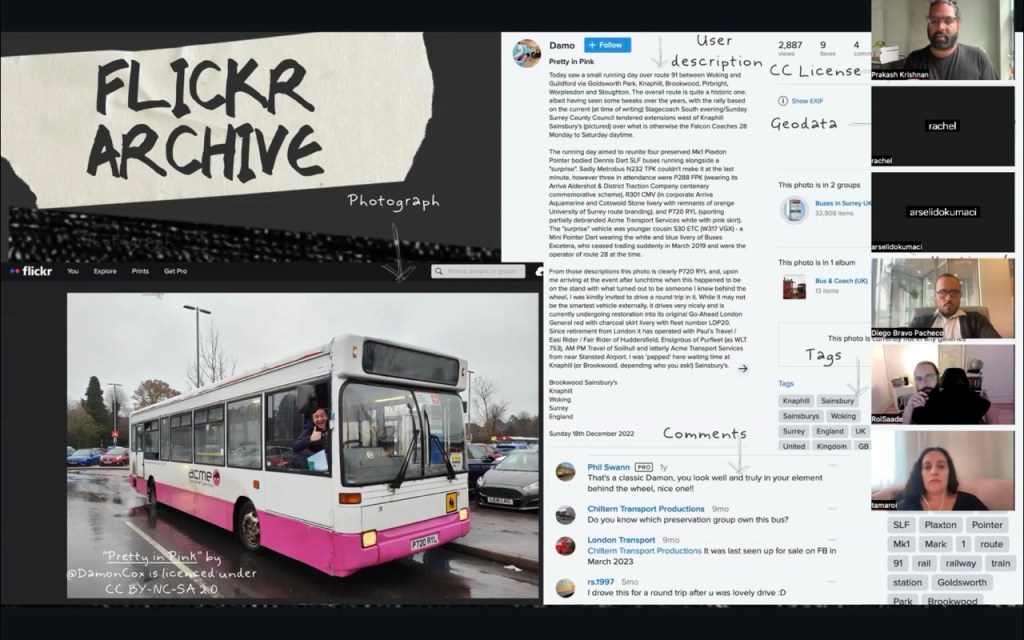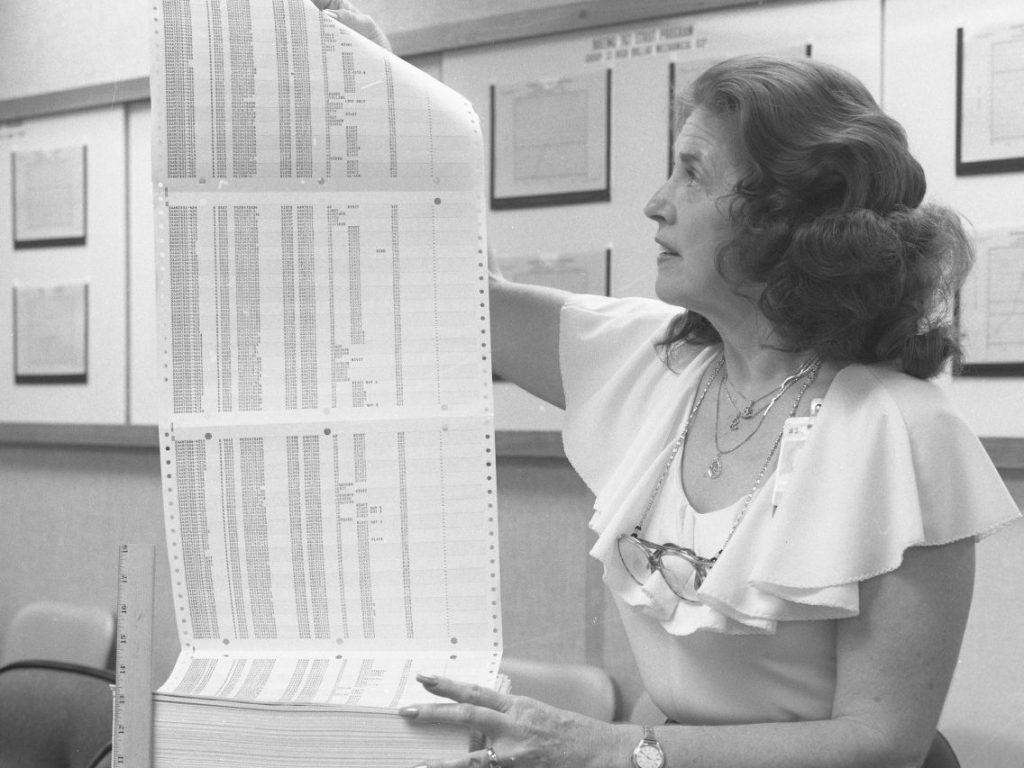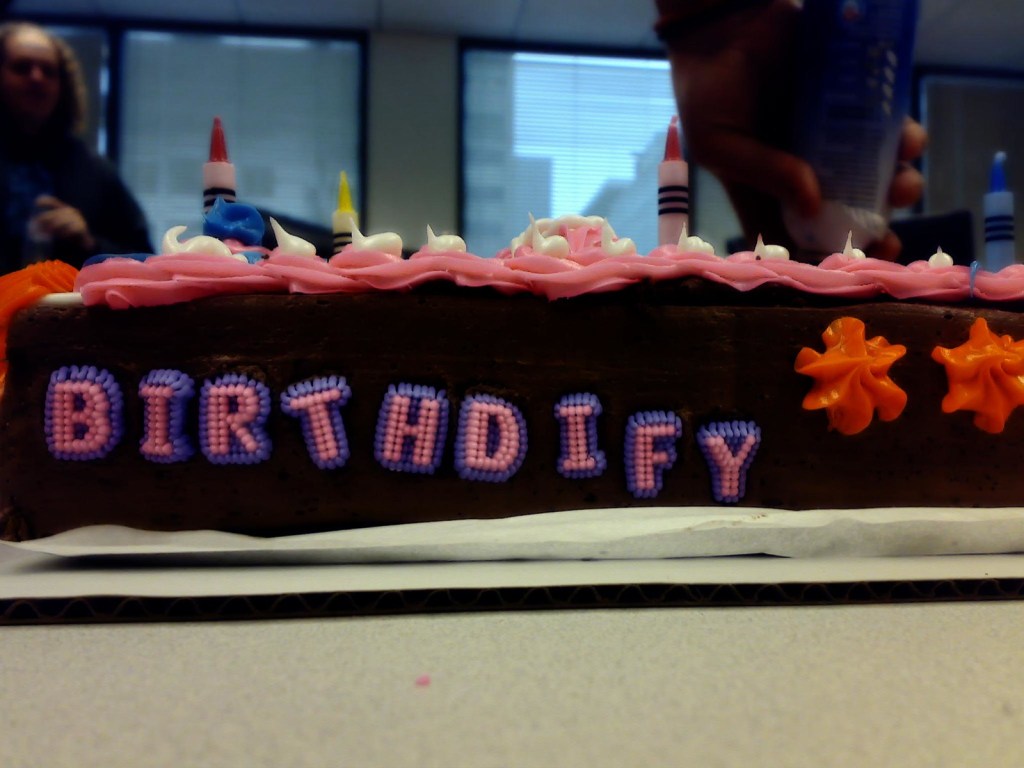Social cataloguing for the world’s photo archives
“The Commons on Flickr” launched in 2008 with the Library of Congress (LOC) as its first partner.
Since then, the Flickr Commons has grown into a unique collection of historical photography, with over 100 cultural institutions in 24 countries around the world participating. The program is now managed by the Flickr Foundation.
Program objectives
- To increase public access to archival photography collections, and
- To provide a way for the general public to contribute information and knowledge.
- To propagate updates from and to member catalogs and other sources, and
- To protect and attend to the long life of this unique collection.
“It’s a garden to tend. You need to water it for it to flourish. The point is you need to interact.”
– Helena Zinkham, Chief of Prints & Photographs, Library of Congress
Are you interested in joining the Flickr Commons?
The program was originally designed to help cultural institutions around the world share photography collections where copyright was unclear, and it’s grown into a unique set of pictures that have enjoyed over 4 billion views since 2008. Have questions? Read our FAQ.Fill out an Expression of Interest in joining the program, and we’ll get back to you.Learn more about how Flickr Commons works
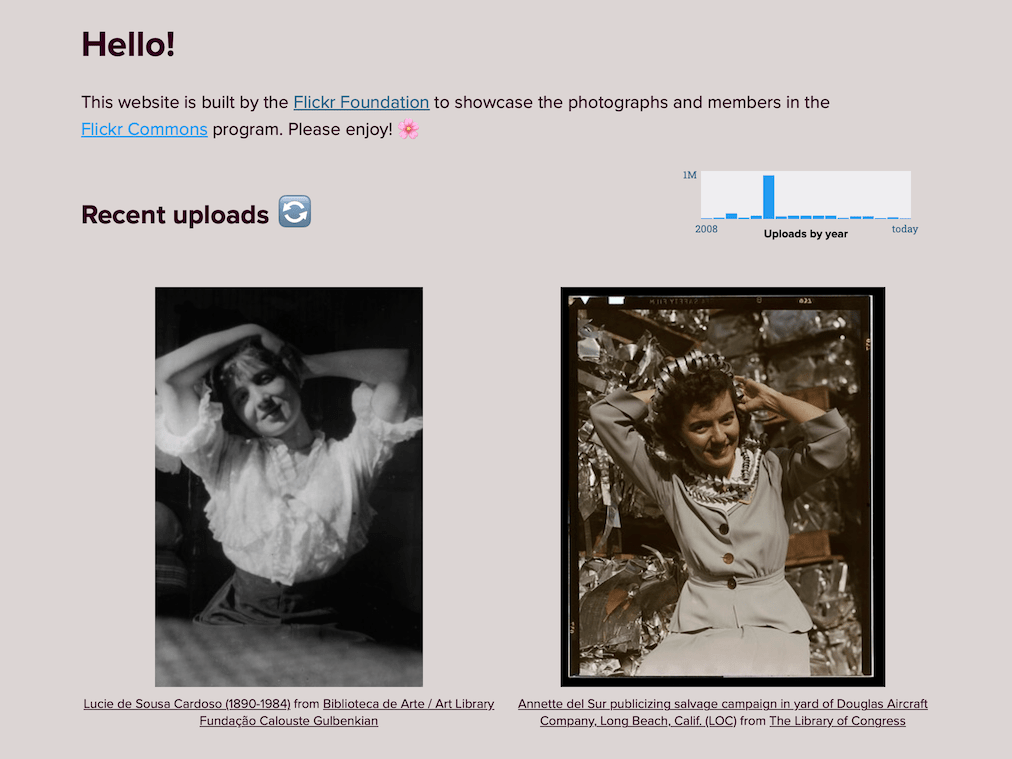
Try the Flickr Commons Explorer!
We’ve built an independent discovery layer for the Flickr Commons collection – commons.flickr.org – where you can see recent uploads, conversations, and stats about the program.Try the ExplorerProgram development
In 2021, we conducted extensive research with the existing Flickr Commons community and related culture workers to explore ideas on how to restore the program. It had languished. We also surveyed how the sector has evolved digitally over the last decade.
We published the Strategy 2021-2023 – Flickr Commons Revitalization in September that year, and we’re mapping our work to it.
Our 2024 plan includes nurturing and growing Flickr Commons.
Work plan
0. Reconnect with the current members
We’re still trying to connect with every Commons member. If you’re in the program and haven’t talked to us about all this yet, can you please reach out?
1. Stuff we should just do
- Add new Discovery layer and encourage contribution – commons.flickr.org launched Jan 2024
- Co-design granular, comparative, exportable stats – Flickr company launched improved stats in 2023
- Streamline onboarding to easily manage membership and participation – Slated for 2024
- Improve description tools for regular researchers – Slated for 2024
- Incorporate CC0 and Public Domain Mark (PDM) into Commons
Our research revealed many Commons members are quite passive in the community. We want to help connect them more easily to the Flickr members who are enjoying and interacting with their photographs. That way, views of photographs become a place for conversation and a stronger community emerges.
2. Alpha work
These developments have emerged through our research as responses to changes in contemporary practice:
- Develop content mobility policy to facilitate more accessible movement of content and metadata
- Co-design support for development of indigenous and dispossessed collections; formally adopt C.A.R.E. Principles for data governance
- Launch Best Little Museum Shop and micro-donations pilot
3. Policy development
Everyone we interviewed was concerned about the lack of governance in the program. Cultural institutions have a long history of skilled governance, and it’s no surprise people were nervous about it lacking at Flickr.
Collection development
We saw the need for a collection development policy, because over the last decade, the program has sprawled out in various ways.
Offboarding
Even though we perceive account deletion as our worst case scenario for the Flickr Commons, we also acknowledge that it can be the singular option for some members. (We’ve seen a handful of departures from the program in 16 years.) Therefore, we are developing a new Offboarding policy as well, to help Commons members leave gracefully if they need to. Let us know if you have a policy like this, or are interested to find out more.
“Flickr Commons is one of the absolute gems of the web.”
